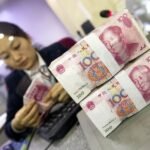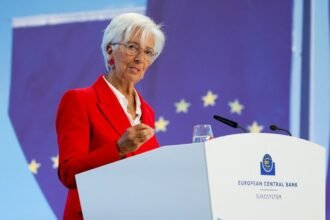

Nigeria’s financial landscape has entered one of its most unique phases in decades. With the Monetary Policy Rate recently lifted above twenty-six per cent and treasury bill yields reaching levels that outpace yearly inflation, naira-denominated assets now look attractive on paper. Yet the same forces that draw foreign portfolio inflows also create exchange-rate volatility that can threaten local purchasing power. For traders and long-term investors alike, understanding how high interest rates interact with currency movements is the key to thriving rather than merely surviving in this environment.
Many Nigerians are responding by exploring forex trading in Nigeria as a way to capture opportunities presented by interest-rate differentials and frequent naira repricing. The country’s large, youthful, and digitally savvy population has quickly embraced mobile apps that offer round-the-clock access to global currency pairs. When properly applied, strategic positioning can turn the volatility that unsettles casual savers into a valuable source of profit and portfolio protection.
Understanding Nigeria’s Interest Rate Landscape
The Central Bank of Nigeria’s aggressive policy tightening aims to curb inflation and attract hard-currency inflows. While higher short-term yields do entice offshore investors into naira assets, they also raise borrowing costs for local businesses and consumers. This combination often leads to slower credit growth and reduced local production, putting fresh pressure on the naira’s value in the informal market. In addition, the wide gap between official and parallel exchange rates creates arbitrage incentives that spill into headlines and influence trader sentiment. A solid grasp of these domestic drivers is the first step toward crafting an informed currency strategy.
Why Currency Positions Matter
Currency exposure is unavoidable in an import-dependent economy: laptops, fuel, medical equipment, and even textbooks are priced in foreign currency long before they reach Nigerian shelves. When the naira weakens sharply, every household feels it through higher prices. By holding strategic positions in major pairs such as USDNGN or cross-rates like EURUSD, traders can hedge against local depreciation. If executed with discipline, gains from currency appreciation abroad can offset rising costs at home, preserving real wealth for school fees, rent, or business inventory.
Popular Strategies for Retail Traders
Below is a single set of concise tactics that Nigerian traders often deploy to navigate the high-rate environment:
● Carry focus: Going long a higher-yielding currency against one with lower yields can generate positive overnight swap returns. Understanding broker swap tables is essential before applying this plan.
● Breakout momentum: The naira frequently trades in tight bands until a policy announcement sparks a decisive move. Traders place pending orders above resistance or below support to catch these bursts.
● News-driven scalps: Inflation data, crude-oil inventory reports, and CBN circulars move markets within minutes. A calendar and fast execution platform are critical for success.
● Partial hedges: Importers who must buy dollars each month can offset timing risk by opening micro-lots whenever the naira shows temporary strength, smoothing their average rate.
Risk Management Within an Illiquid Market
Despite rising retail participation, liquidity in exotic pairs like USDNGN remains thin outside banking hours, widening spreads and magnifying slippage. Position sizes should therefore be modest relative to account equity, and stop-loss orders must allow a buffer for sporadic price gaps. Many experienced traders keep the bulk of their speculative exposure in major pairs such as GBPUSD, where liquidity is deep yet still influenced by global rate expectations. When volatility spikes after a CBN meeting or government bond auction, having predefined exit levels prevents emotion-driven errors.
Regulatory Considerations and Broker Selection
Nigeria’s Securities and Exchange Commission now requires foreign brokers to register locally if they market directly to residents. Traders should confirm that any platform they use complies with this directive, offers segregated client funds, and provides negative-balance protection. Low-cost naira deposit options also help reduce conversion fees that can quietly erode returns. Finally, check that customer support understands Nigerian banking channels and public holidays, since settlement calendars differ from London or New York.
Conclusion
High interest rates are both a challenge and an opportunity. While they may squeeze household budgets and corporate balance sheets, they also create fertile ground for those prepared to engage global markets with clear objectives and sound discipline. By combining an awareness of domestic monetary policy with tested currency strategies, Nigerians can transform volatility from a threat into a growth avenue. The path to thriving in this climate lies in continual learning, prudent risk control, and the willingness to treat currency positions not as speculative gambles but as essential tools in a diversified financial toolkit.




















